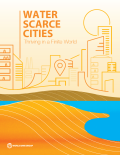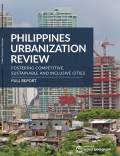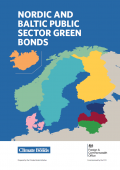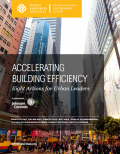Considered to be the largest contributor to the growth in the world’s urban population in the coming years, India and its urbanisation process have reached a critical juncture. As one of the fastest growing countries, urbanisation is undoubtedly an opportunity and a challenge for India with huge implications for the rest of the world.


The Philippines is at a critical juncture in its urbanization process with the number of people living in cities projected to increase by approximately 20 million over the next 20 years. Decisions made now will affect how that urbanization takes place, how cities grow, how vibrant they are, and the extent to which they contribute to improving the lives of tens of millions of residents. Bold policy reforms are needed at both the national and local level too leverage enormous opportunities for growth, job creation and poverty reduction and to avoid the risk of congestion, slums, pollution, inequality and crime.


Efficient buildings—those that make highly productive use of natural resources—are vital to achieving sustainable development: They align economic, social, and environmental opportunities, creating so-called “triple bottom line” benefits.
The Accelerating Building Efficiency: Eight Actions for Urban Leaders provides local governments and other urban leaders in cities around the world with the background, guidance, and tools to accelerate building efficiency action in their communities. The report focuses on eight categories of policies and actions that can help decision-makers plan for transformative change in their cities: Building Efficiency Codes and Standards; Efficiency Improvement Targets; Performance Information and Certifications; Incentives and Finance; Government Leadership by Example; Engaging Building Owners, Managers, and Occupants; Engaging Technical and Financial Service Providers, and Working With Utilities.
